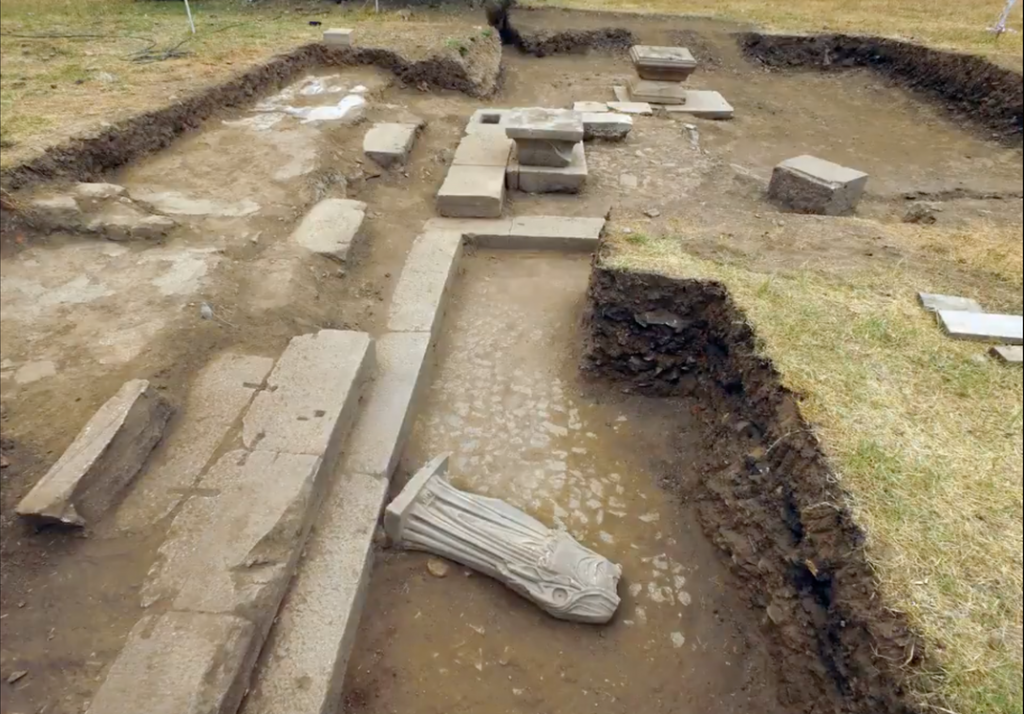In the ancient Greek classical city of Metropolis, located in western Turkey, archaeologists have unearthed an 1,800-year-old marble robed statue of a headless woman.
Despite missing its head and both arms, the rest of the statue is well-preserved and depicts a woman wearing flowing draped clothing.
The Turkish Culture and Tourism Ministry’s Department of Excavation and Celal Bayar University have been jointly studying the ancient city for years.
Known as the “Mother Goddess City,” Metropolis was located 28 miles from the ancient port city of Ephesus and 25 miles from the modern Turkish city of Izmir.
To date, archaeologists working at the site have unearthed artifacts and structures from the classical, Hellenistic, Roman, Byzantine and Ottoman periods. Finds include a Roman palaestra (wrestling hall), mosaics, ceramics, a council building and a columned gallery.
The Metropolis excavation site and its significance:
Metropolis was built in the third century BC, when the region was under the control of the Seleucid Empire. It reached its golden age during the Hellenistic period and served as a center of religious power during the Byzantine Period.
Excavations at Metropolis have been ongoing since 1990, according to the Sabanci Foundation, a philanthropic group that has supported the work.

One of the most prominent features of the ancient city is a Hellenistic theater dated to the third century BC. Roman-era structures discovered during digs include a sports complex, homes, shops, baths, a public toilet, streets and roads.
Earlier this year, archaeologists working at the Metropolis site also announced the discovery of huge cisterns dated to the late Roman or early Byzantine period (around 284 to 750 AD).
Capable of holding a total of around 600 tons of water, the cisterns probably supplied water to a bathhouse in the city and met Metropolis’ overall need for water when it was subjected to sieges that made other sources unavailable.
Many of these finds are now on display at the Izmir Art and History Museum, Izmir Archaeology Museum and Selcuk Efes Museum.
Source: Smithsonian Magazine.

